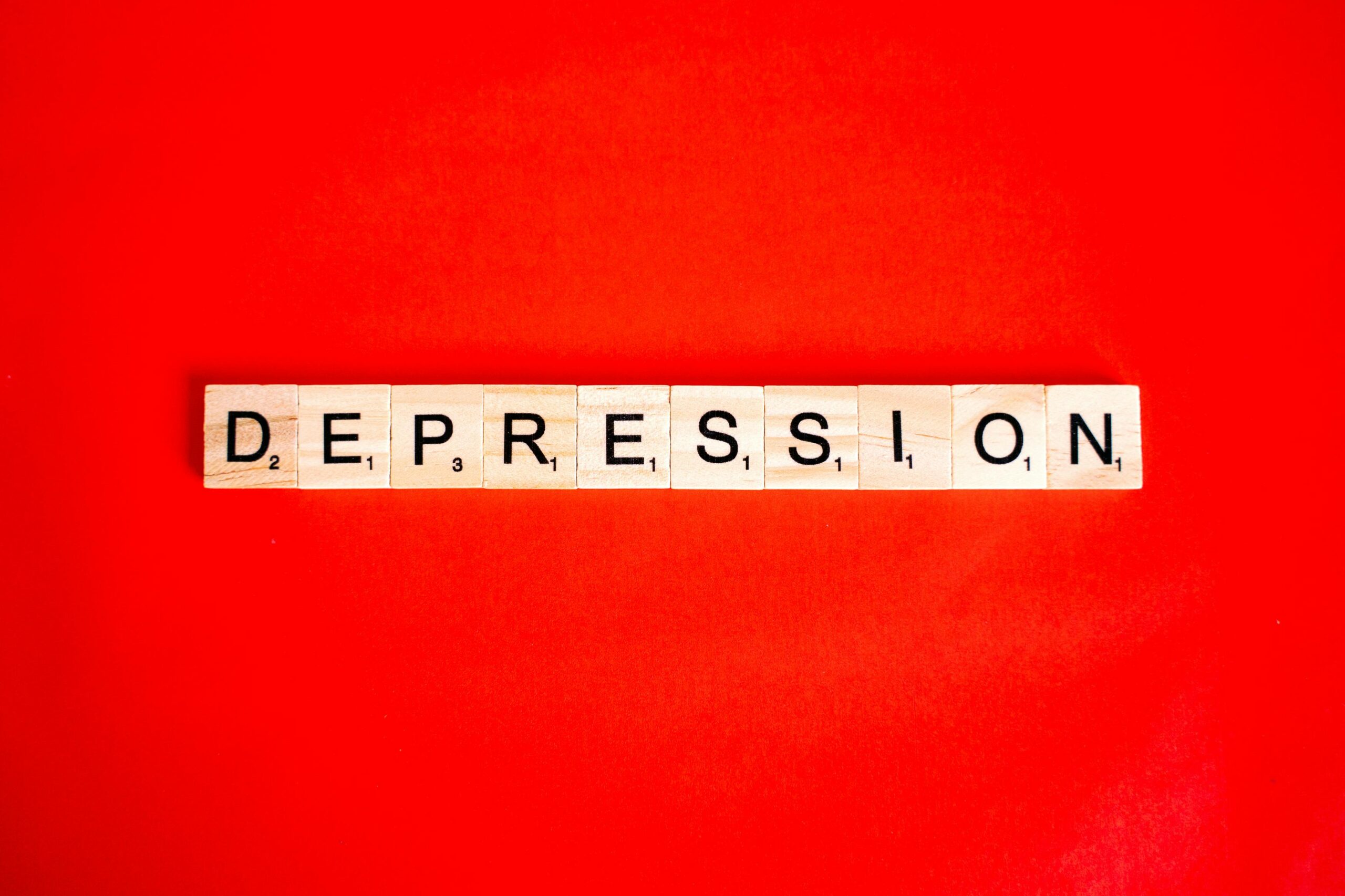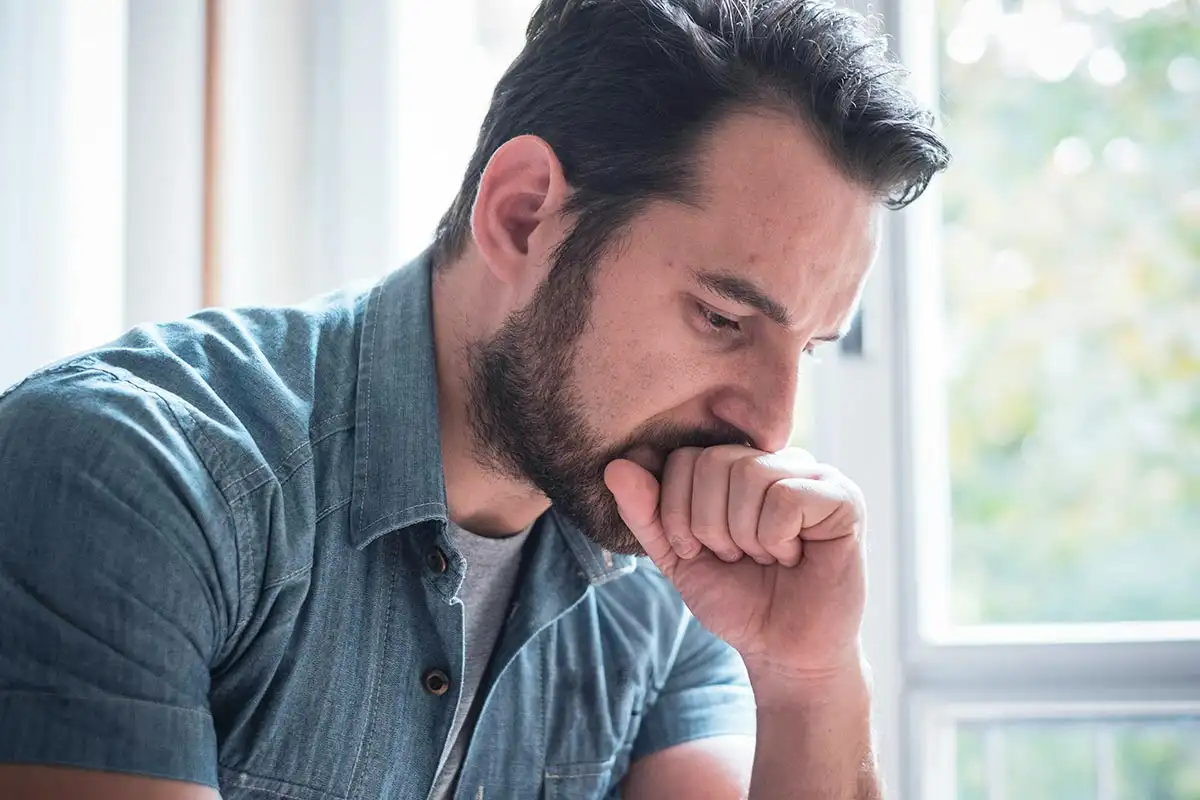
Social Anxiety and IOP: How Virtual Programs in California Can Help
Medically Reviewed by:

Dr. Marco M. Zahedi
Medical Director, Compassion Recovery Center

Dr. Michael Majeski
Licensed Psychologist (LP), Compassion Recovery Center
Table of Contents
Introduction to Social Anxiety and Virtual IOPs
Social anxiety, also known as social phobia, is more than just shyness. It’s an intense, persistent fear of being watched and judged by others. This fear can be so overwhelming that it affects daily activities, work, school, and relationships, making it difficult to lead a fulfilling life. Individuals with social anxiety often experience significant distress in social situations, leading to avoidance behaviors that can further isolate them. Imagine dreading everyday interactions like speaking to a cashier, attending a meeting, or even eating in front of others. This is the reality for many who struggle with this condition, and its impact can be far-reaching, sometimes contributing to feelings of loneliness, depression, and, in some cases, the misuse of substances as a coping mechanism. If you or a loved one in California are grappling with these challenges, know that effective help is available, often in more accessible ways than you might think.
Intensive Outpatient Programs (IOPs) are a structured form of treatment designed to provide comprehensive support and therapy without requiring a residential stay. They offer a higher level of care than traditional weekly therapy sessions but allow individuals to maintain their daily responsibilities like work, school, or family care. For those with social anxiety, an IOP can be particularly beneficial. It provides a safe and supportive environment to learn coping mechanisms, challenge anxious thoughts, and gradually practice social interactions. The structured nature of an IOP, combined with group and individual therapy, helps individuals build confidence and reduce the debilitating fear associated with social settings. Exploring an Intensive Outpatient Program (IOP) can be a significant step towards reclaiming your life from social anxiety.
In recent years, and especially in a diverse and sprawling state like California, virtual IOPs have emerged as a highly effective and accessible alternative. These programs deliver the same quality of care as traditional IOPs but through telehealth platforms. This means you can participate in therapy sessions, group meetings, and receive support from the comfort and privacy of your own home. For individuals with social anxiety, the prospect of starting treatment in a familiar environment can be less daunting, making it easier to take that crucial first step. Compassion Recovery Center specializes in providing these Virtual IOP Program options, primarily serving Orange County and other communities across California. Our remote programs offer flexibility, confidentiality, and expert care, making them an ideal solution for those seeking Mental Health Treatment for social anxiety, often alongside support for co-occurring substance use. If you’re looking for a Virtual IOP for social anxiety that understands your unique needs, we encourage you to reach out today.

Understanding Social Anxiety
Social anxiety disorder (SAD) is characterized by a significant and persistent fear of one or more social or performance situations in which the person is exposed to unfamiliar people or to possible scrutiny by others. The individual fears that they will act in a way (or show anxiety symptoms) that will be embarrassing and humiliating. This fear is often out of proportion to the actual threat posed by the social situation. Common symptoms can be both physical and emotional. Physically, individuals might experience blushing, sweating, trembling, a rapid heartbeat, nausea, or dizziness. Emotionally and cognitively, they may have intense fear of judgment, worry about embarrassing themselves, experience extreme self-consciousness, and avoid situations where they might be the center of attention. These symptoms can make everyday tasks incredibly challenging, from participating in class discussions and giving presentations at work to making new friends or even going to a grocery store.
The challenges faced by individuals with social anxiety are numerous and can deeply impact their quality of life. Academically, students might underperform due to fear of participation or presentations. Professionally, an individual might avoid promotions or career paths that require significant social interaction or public speaking. Socially, it can lead to isolation, difficulty forming and maintaining relationships, and a profound sense of loneliness. The constant effort to manage or hide anxiety symptoms is exhausting, and the fear of negative evaluation can become a self-fulfilling prophecy, as anxious behaviors might inadvertently create awkward social encounters. Addressing social anxiety in a supportive environment is crucial. A space where one feels understood, not judged, allows for the safe exploration of fears and the practice of new coping skills. This is precisely what specialized treatment programs aim to provide.
If left untreated, social anxiety can significantly increase the risk of developing other mental health issues, including depression and other anxiety disorders. Furthermore, a common and dangerous consequence of untreated social anxiety is the turn towards substance abuse as a form of self-medication. Individuals might use alcohol or drugs to ease their inhibitions in social settings, to calm their nerves, or to cope with the distress and isolation caused by the anxiety. This can create a vicious cycle: substance use might temporarily reduce anxiety, but it often worsens it in the long run and can lead to dependence and addiction. This co-occurrence of social anxiety and substance use disorder requires a specialized approach, often known as Dual Diagnosis Treatment. Recognizing these connections is vital for seeking appropriate help. If you suspect your social anxiety is leading to or co-existing with substance use, exploring options like Drug Rehab Programs or Alcohol Rehab Programs that also address mental health is essential. Compassion Recovery Center offers comprehensive social anxiety treatment California that understands these complexities. Please check insurance coverage to see how we can support your journey.
What is an Intensive Outpatient Program (IOP)?
An Intensive Outpatient Program (IOP) is a structured level of care designed for individuals struggling with mental health conditions, substance use disorders, or co-occurring disorders who do not require 24/7 medical supervision like that found in residential or inpatient treatment, but need more support than traditional weekly outpatient therapy. Think of it as a middle ground that offers robust therapeutic services while allowing participants to live at home and continue with many of their daily responsibilities, such as work, school, or family commitments. Typically, an IOP involves several hours of programming, three to five days a week. This programming usually includes a combination of group therapy, individual counseling, psychoeducational sessions, and skills-training workshops. The goal of an Intensive Outpatient Program (IOP) is to provide individuals with the tools, strategies, and support network necessary to manage their symptoms, prevent relapse (if substance use is involved), and improve their overall functioning and quality of life.
For individuals grappling with social anxiety, an IOP offers several distinct benefits. The group therapy component, while potentially intimidating at first, provides a safe and controlled environment to practice social skills, confront fears of judgment, and receive constructive feedback from peers who understand similar struggles. It helps to normalize the experience of social anxiety, reducing feelings of isolation. Individual therapy sessions within the IOP allow for personalized attention, focusing on specific triggers, thought patterns, and behavioral goals related to social anxiety. Psychoeducational groups teach valuable coping mechanisms, communication skills, assertiveness training, and relaxation techniques. The consistent and intensive nature of an IOP helps to build momentum in recovery, reinforcing new, healthier patterns of thinking and behaving more effectively than less frequent therapy might. It’s a space to build confidence gradually, supported by professionals and peers. Many find that the structured support helps them make significant progress in managing their social anxiety treatment California needs.
When considering an IOP, it’s helpful to understand the differences between traditional and virtual formats, especially for someone with social anxiety. Traditional IOPs require participants to travel to a physical location for all sessions. While in-person interaction has its merits, the act of commuting and entering a new group setting can be a significant barrier for someone with severe social anxiety. It might delay or prevent them from seeking help altogether. Virtual IOPs, on the other hand, deliver the same comprehensive services online, through secure video conferencing platforms. Participants can attend all therapy sessions, group meetings, and educational workshops from the comfort and privacy of their own homes. This can dramatically lower the initial barrier to entry for individuals with social anxiety. The familiar environment can reduce anticipatory anxiety about attending sessions. Moreover, virtual IOPs, like those offered by Virtual IOP Program at Compassion Recovery Center, offer greater flexibility in scheduling and eliminate travel time and costs, making treatment more accessible, particularly for those in geographically diverse areas like Orange County IOP seekers or those in more remote parts of California. While the core therapeutic principles remain the same, the delivery method of a Remote IOP California can make a world of difference for someone whose primary challenge is social interaction. You can start your free assessment today to see if this model is right for you.

The Rise of Virtual IOPs in California
The healthcare landscape has been steadily evolving, with telehealth and virtual services gaining momentum even before recent global events accelerated their adoption. In California, a state known for its innovation and vast geography, the shift towards virtual healthcare has been particularly impactful. The benefits are clear: increased accessibility for individuals in remote or underserved areas, greater convenience for those with busy schedules or mobility challenges, and often, a reduction in the stigma associated with seeking treatment. For mental health and addiction services, this shift has opened doors for many who might otherwise have struggled to access care. Virtual IOPs represent a significant part of this movement, offering a robust level of support through online platforms, making comprehensive treatment a viable option for more people across the state, from bustling urban centers like those in Orange County to more rural communities. This model of Telehealth addiction treatment is not just a temporary solution but a growing standard of care.
So, how exactly do virtual IOPs operate? At their core, they replicate the structure and intensity of traditional IOPs using digital tools. Participants typically connect via secure, HIPAA-compliant video conferencing software for group therapy sessions, individual counseling, and family therapy if applicable. These sessions are led by licensed therapists and counselors, just as they would be in person. A virtual IOP curriculum often includes psychoeducation modules, skills-training workshops, and sometimes access to online resources and support materials. Components can include:
- Live Group Therapy: Real-time, interactive sessions with a therapist and a small group of peers. This remains a cornerstone for practicing social skills and gaining mutual support, even in a virtual format.
- Individual Teletherapy: One-on-one sessions with a dedicated therapist to address personal challenges, develop coping strategies, and track progress.
- Family Participation: Virtual platforms make it easier to involve family members in the treatment process, which can be crucial for building a supportive home environment.
- Educational Workshops: Covering topics such as stress management, emotional regulation, relapse prevention, and understanding mental health conditions.
- Medication Management: For clients requiring psychiatric medications or Outpatient Detox support or MAT treatment online, virtual consultations with medical staff can often be integrated.
Technology plays a pivotal role in facilitating these virtual therapy sessions effectively and securely. Modern video conferencing platforms offer features like screen sharing for presentations, breakout rooms for smaller group discussions, and chat functions for real-time interaction, all of which enhance the therapeutic experience. Secure patient portals allow for the safe exchange of information, scheduling, and access to treatment materials. For individuals with social anxiety, the technology itself can sometimes be a gentle buffer, allowing them to engage at their own pace, perhaps initially with their camera off or using chat functions more, before gradually increasing their verbal participation. The key is that the technology serves as a bridge, not a barrier, connecting individuals with the vital care they need. Ensuring ease of use, technical support, and robust privacy measures are paramount for providers of virtual IOPs, like Compassion Recovery Center, to create a therapeutic alliance and foster a sense of safety and trust online. The focus remains on human connection and therapeutic progress, simply facilitated through a different medium.
Benefits of Virtual IOPs for Social Anxiety
One of the most significant advantages of virtual IOPs for individuals with social anxiety is the unparalleled flexibility and convenience. Attending therapy sessions from the comfort and familiarity of one’s own home eliminates the stress and logistical challenges of commuting to a treatment center. This is particularly beneficial for those whose social anxiety is severe enough to make leaving the house a daunting task. Imagine being able to participate in intensive therapy without the added anxiety of navigating public transport, traffic, or unfamiliar physical environments. Participants can more easily integrate treatment into their existing schedules, balancing it with work, academic responsibilities, or family care. This increased accessibility means that individuals who might have previously found it impossible to commit to a traditional IOP can now access the high level of care they need. For residents in areas like Orange County, where life can be fast-paced, a Remote IOP California offers a practical solution to prioritize mental health without upending daily life. Compassion Recovery Center’s Virtual IOP Program is designed with this flexibility in mind.
Another crucial benefit, especially pertinent for social anxiety, is the reduced stigma and increased privacy that virtual programs offer. The fear of being seen entering a mental health or addiction treatment facility can be a major deterrent for individuals already hypersensitive to judgment. Participating in a virtual IOP means that one’s engagement in treatment remains a private matter. Sessions are conducted discreetly from home, removing the public-facing aspect of seeking help. This enhanced confidentiality can make it easier for individuals to take the first step and commit to treatment. Knowing that their journey is personal and protected can alleviate a significant layer of anxiety, allowing them to focus more fully on the therapeutic process. This aspect of accessibility in recovery how virtual treatment reaches underserved communities also extends to those who worry about professional or social repercussions if their treatment were known.
Furthermore, virtual IOPs break down geographical barriers, providing access to specialized care regardless of a person’s location within California. Finding a local IOP that specializes in social anxiety, perhaps co-occurring with substance use, can be challenging in certain areas. Virtual programs, like those offered by Compassion Recovery Center, mean that expert therapists and evidence-based treatments for social anxiety are available to anyone with a stable internet connection, whether they reside in a bustling city or a more remote part of the state. This ensures that individuals are not limited by the providers in their immediate vicinity but can choose a program that best fits their specific needs and therapeutic goals. This expanded reach is vital for ensuring equitable access to high-quality social anxiety treatment California. If you’re looking for specialized care, you can Verify Insurance and explore our services tailored to your needs, no matter where you are in California.
How Virtual IOPs Address Social Anxiety
A cornerstone of effective treatment for social anxiety, whether in-person or virtual, is Cognitive Behavioral Therapy (CBT). Virtual IOPs extensively utilize evidence-based therapies like CBT to help individuals understand and change the thought patterns and behaviors that perpetuate social anxiety. Through Online CBT therapy, participants learn to identify their negative automatic thoughts (e.g., “Everyone is judging me,” “I’m going to say something stupid”), examine the evidence for and against these thoughts, and develop more balanced and realistic perspectives. Therapists guide individuals through techniques such as cognitive restructuring, where they challenge and reframe anxious thoughts. Behavioral components of CBT, like exposure therapy, can also be adapted for a virtual setting. This might involve gradually facing feared social situations in a controlled way, starting with less intimidating scenarios within the online group or in homework assignments, and progressing to more challenging real-world interactions. The goal is to desensitize individuals to their triggers and build confidence in their ability to cope with social situations.
Group therapy plays a crucial, and often transformative, role in addressing social anxiety within a virtual IOP. While the idea of joining a group might initially seem daunting for someone with social anxiety, online groups offer a unique environment that can feel less threatening. Participants can initially observe, use chat features, or speak briefly, gradually increasing their engagement as they feel more comfortable. These groups provide a supportive space where individuals realize they are not alone in their struggles. Sharing experiences and hearing from others who understand can be incredibly validating and reduce feelings of isolation. More importantly, virtual group therapy serves as a real-time laboratory for practicing social skills. Under the guidance of a therapist, members can work on communication techniques, assertiveness, active listening, and giving and receiving feedback. Role-playing exercises, even conducted via video conference, can help build confidence for real-world social encounters. The peer support and shared learning in these groups are invaluable for building social skills and self-assurance, making the Virtual IOP Program a dynamic place for growth.
A key strength of reputable virtual IOPs, like those at Compassion Recovery Center, is the development of personalized treatment plans. Social anxiety manifests differently in each individual, and it often co-occurs with other conditions such as depression or substance use disorders. Therefore, a one-size-fits-all approach is rarely effective. Upon admission, a thorough assessment is conducted to understand the specific nature of the individual’s social anxiety, its severity, any co-occurring issues, personal history, and treatment goals. Based on this assessment, a tailored plan is created. This plan outlines the specific therapeutic modalities to be used (e.g., CBT, DBT-informed skills, motivational interviewing), the frequency of individual and group sessions, and any additional support needed, such as Dual Diagnosis Treatment or coordination for MAT treatment online if substance dependence is a factor. Progress is regularly monitored, and the treatment plan is adjusted as needed to ensure it remains aligned with the individual’s evolving needs and recovery journey. This personalized approach maximizes the effectiveness of the treatment and empowers individuals by making them active participants in their own healing. To begin crafting your personalized path to recovery, start your free assessment with us today.
Integrating Compassion Recovery Center’s Services
At Compassion Recovery Center, we are dedicated to providing high-quality, accessible care for individuals struggling with social anxiety, substance use, and co-occurring disorders throughout California, with a strong focus on serving communities in Orange County. Our Virtual IOP Program is designed to deliver comprehensive and compassionate treatment directly to you, in the comfort and privacy of your home. We understand the unique challenges faced by those with social anxiety, and our remote services are structured to be supportive, engaging, and effective. Our programs integrate evidence-based therapies, experienced clinicians, and a flexible approach to meet your individual needs. We believe that recovery is possible for everyone, and our virtual platform removes many of the traditional barriers to accessing care, making it easier for you to embark on your healing journey. Whether you’re looking for a Remote IOP California or specifically an Orange County IOP, our services are tailored to provide the support you need.
Our virtual IOP offerings encompass a range of specialized services to address the multifaceted nature of social anxiety and related conditions. Key components include:
- Online CBT Therapy: As a core treatment for social anxiety, our therapists are skilled in delivering Cognitive Behavioral Therapy through virtual sessions. This helps you identify and modify unhelpful thought patterns and behaviors that fuel social fears. We focus on practical skills to manage anxiety and build confidence in social settings.
- Dual Diagnosis Treatment: We recognize that social anxiety often co-occurs with substance use disorders or other mental health conditions like depression. Our Dual Diagnosis Treatment approach addresses all conditions simultaneously, leading to more sustainable recovery.
- MAT Treatment Online: For individuals whose social anxiety has led to dependence on opioids or alcohol, we offer Medication-Assisted Treatment (MAT) integrated into our virtual services where appropriate and clinically indicated. Our medical team can provide assessments and manage medications remotely, supporting your physical and psychological recovery. This can be a vital part of our Drug Rehab Programs and Alcohol Rehab Programs.
- Virtual Couples Counseling Rehab: Social anxiety can significantly impact relationships. Our Virtual couples counseling rehab services offer a space for partners to understand the condition, improve communication, and learn how to support each other through the recovery process. This can strengthen your primary support system, which is invaluable for long-term well-being.
- Group and Individual Therapy: A blend of group sessions for peer support and social skill-building, alongside individual therapy for personalized attention and deeper exploration of specific issues, forms the backbone of our program.
While privacy is paramount, the positive outcomes experienced by those who have participated in our programs speak volumes. Many individuals who came to Compassion Recovery Center struggling with debilitating social anxiety, sometimes complicated by substance use, have found profound relief and transformation through our virtual IOP. They report increased confidence in social situations, a significant reduction in anxiety symptoms, improved relationships, and the ability to pursue personal and professional goals that once seemed impossible. For example, clients have shared stories of being able to attend family gatherings without overwhelming fear, confidently participate in work meetings, or simply enjoy everyday social interactions that they previously avoided. Those who also struggled with substance use have found our integrated approach crucial in achieving and maintaining sobriety while simultaneously addressing the underlying anxiety. These successes are a testament to the dedication of our team and the resilience of our clients. We are committed to helping you write your own success story. We encourage you to get help now and discover how our specialized Virtual rehab California can make a difference in your life.
Overcoming Challenges in Virtual IOPs
While virtual IOPs offer numerous benefits, particularly for those with social anxiety, it’s important to acknowledge and address potential challenges to ensure a successful treatment experience. One common concern revolves around technical issues. A stable internet connection and a suitable device (computer, tablet, or smartphone with a camera and microphone) are essential for participation. At Compassion Recovery Center, we strive to make our platform as user-friendly as possible and provide guidance on what to pack and prepare for virtual rehab setting yourself up at home, including technical setup. Our team can offer basic troubleshooting support, and we choose platforms that are generally reliable and easy to navigate. We also advise clients on preparing their space to minimize distractions and ensure privacy, which is crucial for effective therapy. Sometimes, simple adjustments like using headphones can greatly improve audio quality and reduce background noise, enhancing the virtual experience for everyone in a group session.
Maintaining engagement and motivation can sometimes be a hurdle in a remote setting, especially over the duration of an IOP. Without the physical structure of an in-person center, self-discipline becomes more important. We employ several strategies to foster engagement. Our therapists are skilled at creating a dynamic and interactive online environment, encouraging active participation in group discussions and activities. Setting clear goals at the outset of treatment and regularly reviewing progress helps keep individuals focused and motivated. We emphasize the importance of establishing a routine, just as one would for an in-person program – dedicating specific times and a quiet space for sessions. Building a strong therapeutic alliance with the individual therapist and fostering a sense of community within the therapy groups are also key. We encourage clients to utilize the skills learned, such as those from our blog on staying accountable in a virtual program tips for progress, to take an active role in their recovery journey. Consistent communication and support from our team help address any flagging motivation promptly.
The home environment plays a critical role in the success of virtual therapy. For therapy to be effective, participants need a private, quiet space where they feel safe to speak openly without fear of being overheard or interrupted. This can be challenging for individuals living with family, roommates, or small children. We encourage clients to communicate their needs to household members, explaining the importance of uninterrupted time for their sessions. This might involve setting clear boundaries, using a “do not disturb” sign, or arranging for childcare during therapy hours if necessary. Creating a dedicated “therapy space,” even if it’s just a corner of a room, can also help mentally prepare for sessions and create a sense of separation from daily household activities. A supportive home environment not only facilitates effective therapy but also reinforces the skills and strategies learned in the program. If relationship dynamics are a source of stress or a barrier to creating this supportive space, our Virtual IOP Program can also incorporate family therapy or virtual couples counseling to address these issues. Our goal at Compassion Recovery Center is to help you navigate these challenges so you can fully benefit from our Telehealth addiction treatment and mental health services.
The Future of Virtual IOPs in California
The landscape of mental health and addiction treatment is continually evolving, and virtual IOPs are at the forefront of this transformation in California. We anticipate several exciting advancements in virtual therapy technology that will further enhance the effectiveness and accessibility of these programs. Innovations may include more sophisticated interactive tools within virtual platforms, making group sessions even more engaging. The use of virtual reality (VR) for exposure therapy, particularly for anxiety disorders like social phobia, holds considerable promise, allowing individuals to practice navigating feared social situations in highly realistic, yet controlled, simulated environments. Artificial intelligence (AI) could potentially play a role in personalizing treatment further, perhaps by helping to identify patterns in mood or behavior (with client consent and strict privacy protocols) that could inform therapeutic interventions. Furthermore, improved integration between different digital health tools – such as therapy platforms, wearable devices for monitoring physiological signs of stress, and electronic health records – will likely lead to more seamless and holistic care. As a provider of Virtual rehab California, Compassion Recovery Center is committed to exploring and adopting proven technological advancements that benefit our clients.
There is a clear trend towards growing acceptance and integration of virtual IOPs into mainstream healthcare in California and beyond. What might have once been viewed as a niche alternative is increasingly recognized as a valid and effective modality of care by clients, clinicians, and insurance providers alike. The COVID-19 pandemic significantly accelerated this acceptance, demonstrating the capacity of telehealth to deliver quality services reliably. Regulatory bodies and insurance companies are increasingly adapting their policies to support and reimburse for virtual mental health and addiction treatment, understanding its value in expanding access and improving outcomes. This means that more individuals will have the option to choose a Remote IOP California that fits their lifestyle and needs. We foresee virtual IOPs becoming a standard, integral part of the continuum of care, working in concert with in-person services to provide a comprehensive and flexible system of support. This is particularly relevant for conditions like social anxiety, where the initial step into treatment can be made less daunting through remote access.
Compassion Recovery Center is dedicated to being a leader in this evolving field. Our plan is to continuously innovate and expand our virtual services to better meet the needs of individuals and families in Orange County and throughout California. This includes refining our current Virtual IOP Program, potentially incorporating new therapeutic techniques adapted for online delivery, and expanding our specialized tracks to address a wider range of co-occurring conditions. We are focused on enhancing the user experience, ensuring our platforms are intuitive, secure, and foster a strong sense of connection and community. We will also continue to invest in training our clinicians in the latest best practices for virtual therapy. Our commitment is to make high-quality social anxiety treatment California and comprehensive Telehealth addiction treatment as accessible and effective as possible. We aim to be at the vanguard of providing compassionate, evidence-based care through innovative remote solutions. If you’re interested in learning more about our forward-thinking approach to recovery, please reach out today. We are excited about the future and our role in helping more people find healing and hope.
Your Path to Overcoming Social Anxiety Starts Here
Throughout this discussion, we’ve explored the significant challenges posed by social anxiety and how innovative treatment options, particularly virtual Intensive Outpatient Programs (IOPs), are making a profound difference in California. The benefits of engaging in a Virtual IOP for social anxiety are numerous and compelling. The flexibility to attend therapy from the comfort of your home removes significant barriers, especially when anxiety makes leaving the house feel overwhelming. The increased privacy and reduced stigma associated with remote treatment can make it easier to take that courageous first step towards seeking help. Furthermore, virtual programs like those offered by Compassion Recovery Center ensure that individuals across California, including those in Orange County, have access to specialized care, including Online CBT therapy and support for co-occurring conditions like substance use, regardless of their geographical location. The structured support, evidence-based therapies, and peer connections fostered in these programs empower individuals to build confidence, manage anxiety, and reclaim their lives.
If you or someone you care about is struggling with social anxiety, perhaps using substances to cope, or feeling isolated by fear, please know that you are not alone and effective help is available. Social anxiety is a treatable condition, and you don’t have to continue suffering in silence. The development of virtual treatment options has made accessing high-quality care more feasible than ever before. It offers a path to understanding your anxiety, developing effective coping strategies, and building the social confidence you deserve. Taking the step to explore these options can be life-changing, opening doors to new possibilities, richer relationships, and a greater sense of well-being. We encourage you to embrace the opportunity for healing and growth that these modern therapeutic approaches provide.
Your journey towards a life less defined by social anxiety can begin today. Compassion Recovery Center is here to support you every step of the way with our specialized Remote drug rehab Orange County services and mental health programs. We invite you to Contact Us for a confidential consultation to discuss your specific needs and learn more about how our virtual IOP can help. You can also easily verify your insurance online through our website or start your free assessment to explore your treatment options. Let us help you navigate the path to recovery with empathy, expertise, and the convenience of virtual care. Take that brave step forward; a more confident and fulfilling life is within reach.
What is a virtual Intensive Outpatient Program (IOP)?
How can virtual IOPs help with social anxiety?
Are virtual IOPs as effective as in-person programs?
What types of therapy are included in a virtual IOP?
How do I access a virtual IOP in California?
Is my privacy protected in a virtual IOP?
Can I participate in a virtual IOP if I live outside California?
How do I know if a virtual IOP is right for me?
Struggling to balance life while needing support? Get expert virtual care and start your recovery journey, anytime, anywhere.
We’re learning more each day.
Researchers and doctors are making exciting progress in understanding mental health and addiction—bringing hope to millions.
Your genes don’t define you.
Genetics can play a part, but they don’t decide your future. Mental health is shaped by many factors, and healing is always possible.
There's no one-size-fits-all.
The right treatment often includes a mix of therapy, medication, and compassionate care—tailored just for you.


















